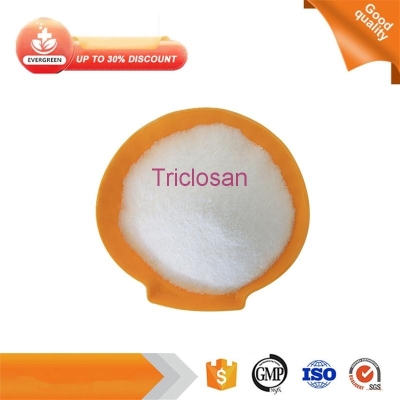Bidding will meet the needs of adjusting health and Family Planning Commission officials and expound three major trends of reform
-
Last Update: 2014-09-01
-
Source: Internet
-
Author: User
Search more information of high quality chemicals, good prices and reliable suppliers, visit
www.echemi.com
Source: from September 1, 2014 to August, the centralized purchase of drugs, which had been quiet for a long time, became more and more popular First, the procurement policies of Anhui and Fujian attracted a strong rebound of pharmaceutical enterprises, and then Zhejiang, Jiangxi, Ningxia and other places successively solicited public opinions on the centralized drug procurement plan of their own province, with all stakeholders competing In addition, the national version of the centralized drug purchase method for public hospitals is being revised and improved, and its internal draft for comments is also appearing in the media from time to time Obviously, the centralized purchase of drugs is about to usher in a major adjustment However, the experience and lessons of previous adjustments have proved that a single institutional change cannot achieve the expected results The next step in the reform of drug procurement must bypass this strange circle Liu Zheng, who has been working on drug procurement for more than 20 years, is now confused He is a staff member of a drug purchasing department in the eastern province, talking about the current purchasing policy, but he seems to have no idea "Low cost medicine, double envelop, quality stratification, online purchase At present, there are many policies and disorderly information, which is not good to say " It has been more than 20 years since the centralized purchase of drugs began in the 1990s Since 2000, this work has been adjusted every four or five years At first, it was carried out with the city as the unit, the medical institutions as the main procurement body, and the intermediary agencies entrusted with the centralized bidding procurement of drugs Since 2006, we have gradually implemented the centralized online drug procurement with the government as the leading and the province as the unit Since 2010, with the establishment of the basic drug system, the basic drug procurement began to build a new mechanism characterized by "the integration of bidding and procurement, the linking of quantity and price, and the double envelope system" In 2014, classified procurement was also known as a policy hot spot There are also constant changes From the start of centralized drug purchase to now, one of the core objectives of this policy is to correct the unhealthy trend of the industry and combat commercial bribery Song Ruilin, executive director of the pharmaceutical policy research center of the Chinese Pharmaceutical Association, said that in the early 1990s, the drug supply system, which used to be dominated by three-level pharmaceutical stations, gradually disintegrated Drug production, supply, sales and price management were liberalized As a result, the number of pharmaceutical enterprises surged, the production capacity was surplus, and market competition was fierce On the other hand, the medical service system is also in the process of transformation Public hospitals begin to pursue profits and seek expansion and development In this context, enterprises use various means to promote sales in order to seize the market, "high pricing, high rebate, large prescription, large inspection" began to appear In addition, at this time, the labor insurance system of employees is also undergoing reform and adjustment, the security capacity is weakened, the dissatisfaction of the masses with the medical system is increased, and medical disputes are frequent In order to alleviate social contradictions, the relevant departments began to rectify the order of drug circulation In the process of controlling the unhealthy trend in the field of medicine purchase and sale, all regions began to think about and explore the centralized purchase of drugs and standardize the drug management of medical institutions "Therefore, centralized drug purchase has multiple tasks since its establishment." Song Ruilin said And this kind of top-level design has laid a foreshadowing for the disputes between the interest subjects of all parties in the future Since then, in the public opinion war on drug procurement, it has often been seen that all parties involved in the debate are expressing their demands: enterprises talk about market economy, governments talk about anti-corruption and rectification, hospitals talk about clinical needs, which seems lively, but in fact, it is not the same thing In this regard, Liu Zheng's feelings are more direct "In the past two years, the discipline inspection department gradually faded out of the procurement process, but now it is back." He said that his province began to take the lead of the county (city) discipline inspection department to organize the second price negotiation of drugs "Although the drug purchase policy does not allow, it is not easy to say anything." Due to the responsibility of rectifying the unhealthy trend in the industry, the drug purchase naturally needs to be controlled by the relevant departments Some places also take the reform of drug procurement as the starting point to promote the overall reform of the medical system, further enhancing the administrative color of this link In the view of the pharmaceutical industry, the hand of the government is not omnipotent, and excessive intervention can not achieve the desired effect Among them, the most typical performance is the price volume linkage of drug procurement The so-called quantity price linkage is an important measure to ensure the price of purchased drugs Through the preparation of procurement plan, the specific dosage forms, specifications and quality requirements of procurement are defined, the procurement quantity is defined, the whole procurement process is completed at one time, the purchase and sale contract is signed, and the payment time is strictly specified In this way, drug supply enterprises can accurately calculate the quantity and market share of supply before bidding, so as to calculate the cost and determine the quotation reasonably, and give full play to the advantages of batch purchase However, in the current drug procurement of public hospitals, even if enterprises win the bid, medical institutions do not sign future drug consumption with these enterprises This bidding only means that the enterprise is qualified to enter the hospital, but whether it can be sold in each hospital and how much it can be sold still needs the public relations of the enterprise to the hospital and the doctor one by one Some experts told reporters that this mode of separation of recruitment and procurement, and disconnection of quantity and price, deviated from the original intention of the design of centralized procurement system, but would promote the spread of commercial bribery This is also considered to be the biggest drawback of the current centralized purchase method of hospital drugs On the one hand, it is related to the monopoly position of public hospitals There is a great risk in the price negotiation between enterprises and hospitals and in the realization of the link between quantity and price Even if the pharmaceutical companies promised the price, the hospital did not fulfill the promised purchase volume, and the enterprises had no way to do it On the other hand, in the bidding procurement, the bidding subject and the procurement subject are separated, and the procurement party is unwilling to perform the contract, or the difference between the total amount of procurement promised and the actual procurement amount is great In the view of medical institutions, even if the government uses administrative means to implement the price volume linkage, it is only wishful thinking The physician of a top three hospital said: "it is the natural right of doctors to use what medicine and how much The government can use the compulsory administrative power to deprive the hospital of the right to purchase drugs, but it is impossible to deprive doctors of the right to prescription If the drug variety and purchase quantity determined by the government are not in the interests of doctors, it is difficult to be implemented in practice " What makes administrative departments feel headache is that under the system of supplementing medicine with drugs, even if the amount and price are linked eventually, it is difficult to fundamentally solve the commercial bribery in the drug purchase and sale The phenomenon of second bargaining has changed its face, with hidden forms such as rebate, cash rebate, purchase point bill fee, etc In the view of many experts, relying on the "drug reform" alone can not solve the problem of high drug price and drug cost Professor Song Hua of Renmin University of China has made an empirical study on the centralized bidding procurement system from two aspects: macro performance and micro performance The result of the research and evaluation is that the micro performance is better realized Through centralized bidding, the buyer and the seller have a better grasp of the demand information and supply information of the industry But macro performance has not been achieved The so-called macro performance refers to reducing the transaction cost of drugs, reducing bribery and corruption in drug transactions, and centralized bidding procurement does not reduce these behaviors Wang Lijun, a deputy researcher of the social development research department of the development research center of the State Council, said in an interview with the media that the centralized purchase of drugs in China began to be implemented in the case of disordered drug production and circulation and unreasonable compensation mechanism of medical institutions In addition to some problems of supporting policy design, all parties hope that the price of drugs will be high, so as to make more profits, rather than reduce the purchase Purchase price Because of this, the centralized purchase of drugs in our country was almost enforced at the beginning, and it also bears multiple missions such as standardizing the purchase behavior of medical institutions, rectifying the order of drug circulation, standardizing the price of drugs, and reducing the medical expenses of the masses Therefore, the centralized purchase of drugs in our country has been carried out from the very beginning under the condition that the incentive mechanism is not smooth, which is the biggest problem and has not been completely solved so far "Since 2006, the centralized procurement with provincial bidding price limit has been dissimilated "The goal of centralized procurement is to reduce price", which is wrong in itself An expert who studies drug circulation policy told reporters that a complete drug circulation supply chain, from production enterprises to prescription doctors, involves production, bidding, circulation, use, compensation of public hospitals, etc it is difficult to fundamentally change the current situation by relying on the reform of a centralized procurement platform alone The medical reform should focus on solving the problems of the medical system The medical system has been straightened out Drugs are just ordinary commercial products, and will naturally return to normal In his view, the real difficulty of reform is how to correctly handle the redistribution of power and interests in the field of drug circulation And that's the key In Song Ruilin's view, the coordinated reform is crucial Although there are many problems in the current centralized drug purchase system, no better system has been found In fact, according to the World Health Organization, the goal of drug procurement is to obtain enough basic drugs with the lowest procurement cost, which can meet the needs of daily patients and have the best cost-effectiveness ratio, select suppliers with quality assurance and timely supply ability, and form a drug procurement system that can effectively manage and supervise the behaviors of all parties involved in the procurement An expert involved in the formulation of drug bidding policy said that drug bidding should ultimately return to the most essential purpose, which is to obtain the best drugs at the lowest cost To achieve this, the linkage of external supporting reform is crucial Wang Lijun said that if the hospital's drugs become its cost, rather than a tool to make money, the hospital will have the power to purchase the drugs with the best cost performance; if the drug purchase can fully realize the volume price linkage or single source commitment, then the supplier is willing to supply drugs at a lower price, which realizes the original intention of centralized purchase After the incentive mechanism in drug procurement is straightened out, drug centralized procurement can be more diversified In addition to the centralized procurement of government organizations, hospitals can also be allowed to voluntarily organize centralized procurement, allow intermediary organizations to participate, and promote the specialization of drug procurement The government can do a good job in supervision "In fact, this is a policy proposed or even advocated by the centralized bidding and purchase policy of drugs in 2001, but it can not be carried out because of the incompatibility of incentives caused by other systems of the pharmaceutical system." Wang Lijun said that when the medical reform carried out reforms on these problematic systems, the mission of centralized drug procurement would not be so much, and the pressure of the government would not be so great An official from the drug administration department of the national health and Family Planning Commission told reporters that in the next step, public hospital drug procurement will strengthen the linkage with medical insurance payment mode and price reform, play the role of policy leverage such as medical insurance and price, including exploring the establishment of medical insurance payment benchmark price; Encourage medical insurance agencies to negotiate with medical institutions and drug suppliers on price, and reasonably adjust the price of medical services, etc.; "in the cities where the reform of public hospitals is carried out, more exploration will be made on centralized drug procurement."
This article is an English version of an article which is originally in the Chinese language on echemi.com and is provided for information purposes only.
This website makes no representation or warranty of any kind, either expressed or implied, as to the accuracy, completeness ownership or reliability of
the article or any translations thereof. If you have any concerns or complaints relating to the article, please send an email, providing a detailed
description of the concern or complaint, to
service@echemi.com. A staff member will contact you within 5 working days. Once verified, infringing content
will be removed immediately.







